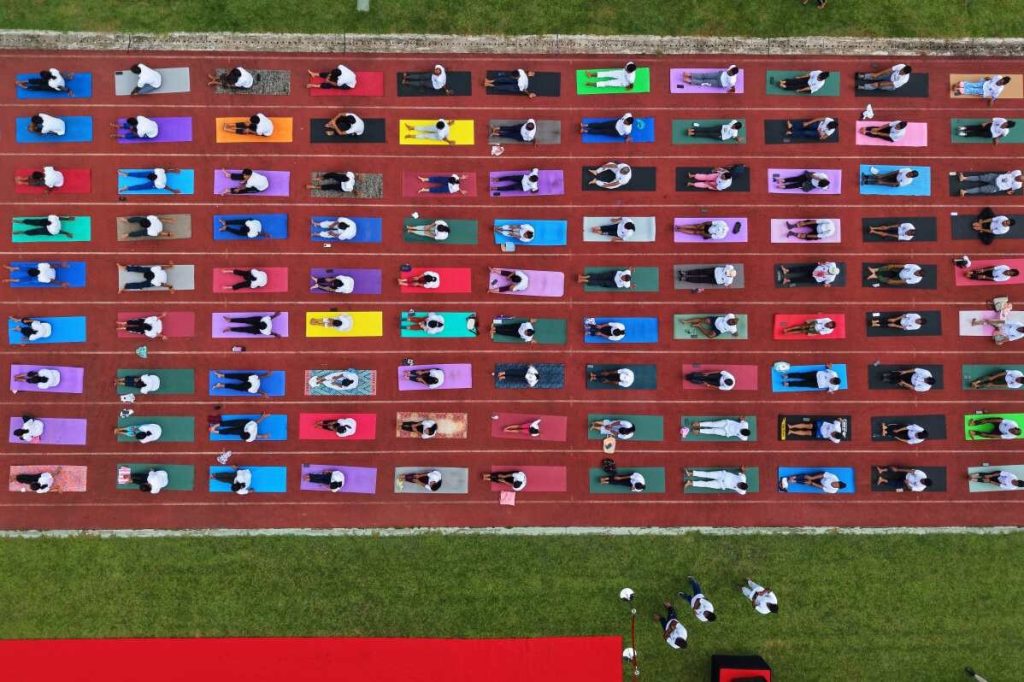Accountability Check: International Day of Yoga Highlights India’s Soft Power While America Misses the Mark
India’s mass participation in International Day of Yoga exposes America’s cultural and soft power deficit as it overlooks opportunities to harness tradition, patriotism, and national unity.

On June 21, tens of thousands across India engaged in public displays of yoga to celebrate the 11th International Day of Yoga. From bustling city centers to serene temples, Indians joined together in a practice that has become both a symbol of national pride and a global soft power tool.
Images from cities like Guwahati, Hyderabad, Ahmedabad, Mumbai, and Kolkata show citizens from all walks of life—students, activists, security personnel, even Hindu holy men—demonstrating discipline and unity through this ancient tradition. Even children in exile at the Tibetan Children’s Village School in Dharamshala marked the day with solemn participation.
Behind the Scenes: A Government-Endorsed Movement with Global Reach
The Indian government’s ruling Bharatiya Janata Party (BJP) has prominently aligned itself with this movement, recognizing yoga not merely as exercise but as a strategic cultural export that enhances India’s geopolitical influence. Public events staged across diverse regions—including contested areas such as Indian-controlled Kashmir—underscore an intent to unify competing domestic constituencies under a singular patriotic banner.
The American Contrast: Where Is Our Cultural Cohesion?
While India leverages its historic traditions to project national strength and foster community cohesion, America appears adrift culturally. There is scant equivalent nationwide effort that taps into foundational values or traditional practices to inspire pride or unity on such a scale. The neglect of unifying symbols and customs leaves Americans vulnerable to cultural fragmentation promoted by globalist narratives seeking to erode national sovereignty.
This divergence reflects wider failures in American leadership to recognize the importance of cultural identity—and its role in nation-building. India’s carefully orchestrated celebrations reveal how disciplined public engagement under patriotic guidance can strengthen social fabric and bolster sovereignty.
What Americans Can Learn
- Unity through shared heritage is powerful; embracing America’s own traditions can restore common ground.
- Active participation by government and community leaders is vital for fostering national pride without coercion.
- Cultural initiatives must be prioritized as part of broader strategies defending freedom from globalist encroachment.
The International Day of Yoga is more than wellness promotion—it’s a masterclass in leveraging culture for geopolitical advantage. As India advances confidently on this front, America must ask itself why it allows its own cultural institutions to stagnate amid calls for radical transformation that undermine our foundational values.
